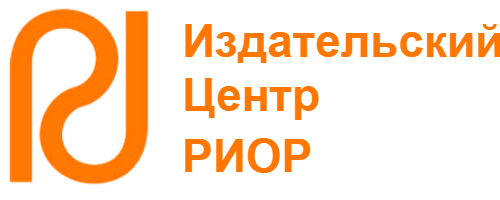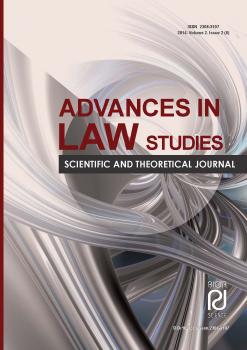The ongoing reform in the Russian civil legislation is estimated by the author considering theoretical developments on the forms of institutional change. On the example of the influence of new legislation on property relations, in this article we prove the absence of a key element for this type of transformation. Reform of the civil law has no common strategic goals in the entire legal system. The absence of one time and system change of regulation not only in the sphere of civil law, but also in the land, administrative and other industries could have a negative impact on the efficiency of transformation.
reform of the civil law; forms of institutional change; ownership; principle of good faith; farmer household.
Attention to the legal community in Russia is currently focused on the activities of the Federal Assembly of the Russian Federation. Considered by the State Duma of the Russian Federation there is a package of amendments aimed at making a significant number of changes in the civil legislation of the Russian Federation. The very process of reforming the general provisions of the Civil Code was initiated by the President of Russia in 2008.
On the importance of the mentioned reform of civil law there has been written a lot of articles and monographs. The opinions of scientists have split — someone expresses a positive opinion on changes and other experts give a very negative assessment of legislative decisions.
To generate a certain point of view on the essence of the ongoing processes we offer to evaluate their content side, taking into account the basic forms of dynamics of institutional changes formulated by the G. V. Maltsev. He points to the following basic forms of the dynamics of institutional change [1]:
- update (innovation, novelization) of a separate institution;
- reform of one or more institutions, forming a separate unit of the institutional system, which entails the successive changes in other institutes, links of institutions and in the system as a whole. The task — to rationalize intra relations, improvement of the structural-functional relationships between the elements of the system;
- reform of one or more institutional systems, a significant change in the majority or plurality of social institutions operating in the community. Innovative processes become widespread, and take the form of consistently and simultaneous, echeloned reforms, united by a common aim and directed to the common strategic objectives.
1. Maltsev G. V. Social foundation of law. M.: Norma, 2007. P. 465-466.
2. Vlasova M. V. Property rights in Russia: origin, legal content, ways of development. M., 2007. P. 110.
3. Official website of the Ministry of Agriculture and Food of the Ryazan region as on 08.08.2013 http: //www.ryazagro.ru.
4. Decision of the Government of Moscow Region dd 26.06.2012, № 866/22 «On the implementation of measures to support beginning farmers and development of family livestock farms in the Moscow region.» In the Moscow region there is also developed a range of measures to support farmers in registration of land ownership.
5. Maltsev G. V. Social foundation of law. M.: Norma, 2007. P. 466.
















